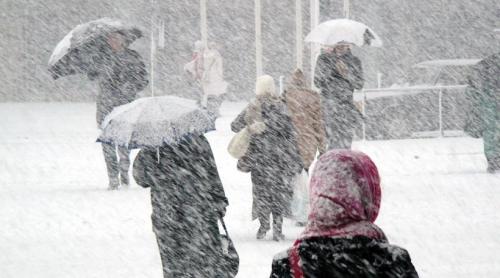The majority in parliament will become even more fragile in the fall, when 35 parliamentarians will leave for Brussels, to represent Romania as observers in the European Parliament. Hence passing of legislation will become increasingly difficult for the ruling coalition.
The 35-some were okayed by their respective parties, the leadership of the two legislative chambers and were tutored during a three-day crash-course by European experts on their duties in Strasbourg; so, now they are ready for their observer jobs to start in September this year and last till Romania will integrate fully into the European Union.
Thus, just as the coalition was struggling to decide over organizing early elections or not in order to garner a wider support for its policies, it will shrink to 140 deputies, of the initial 152, while the opposition will go down to 131, from 142 before.
Therefore the insurmountable hurdle will arrive when the ruling coalition will attempt to pass laws which require a majority vote of the nominal number of the House members, which cannot been reached now even if the 18 votes of the minorities and the 19 independent votes will follow it.
The situation in the Senate is not any rosier. The ruling coalition already got a series of blows during the past legislative term and the future might bring more of the same, since the balance of votes will stay now at 66 to 57, from 72 to 63 before, and only two independent votes to vie for.
Solutions to the problem were already put on the table at the Senate. One proposal was for all laws requiring a majority vote of the members to be crammed in the space of a week or two, allowing thus the parliamentarians with observer status in Strasbourg to attend. The other proposal was for the mail-vote to be accepted. As a matter of fact, the new Senate regulations envisaged a move towards the voting by mail, but it was not yet adopted.
The official schedule of the Romanian parliamentarians to move in Strasbourg as observers will start on 26 December, and will span over three weeks at a time, with one week in the political group, one week in the commission, and one week in plenary sessions. The Romanian observers will have the same salaries as back home, with only a stipend to cover for accommodation and transportation from the European Parliament.
The three-day crash-course in the observersâ duties at the EP took place in late June, but not all future observers attended it. The European experts did their part of the job with informing those present on the working of the EP and its relationship with national institutions, as well as on their duties as observers of Romania.
The list of future EP observers reads like this: Democrat Party deputies Roberta-Alma Anastase, Monica Iacob Ridzi, Marian Jean Marinescu, National Liberal Party deputies Mona Musca, Mircea Cosea, Raluca Turcan, Tiberiu Barbuletiu, and Ovidiu Silaghi. The ruling coalition also nominated senators Maria Petre, Nicolae Vlad Popa, Radu Tarle, and Adrian Cioroianu, while the Democratic Union of Hungarians in Romania nominated Deputies Kelemen Attila, Konya-Hamar Sandor and Senator Karoly Szabo. The Greater Romania Party snationalistt will dispatch in Strasbourg senators Eugen Mihaiescu, Viorel Duca and Deputies Daniela Buruiana, Petre Popeanga, and Vlad Hogea. The Conservative party named for the job senator Silvia Ciornei and deputy Dumitru Becsenescu, while the minorities group in the House elected Ovidiu Gant as their representative in the EP.
The opposition Social Democrat Party has the largest delegation: Senators Alexandru Athanasiu, Corina Cretu, Vasile Dancu, Serban Nicolae and deputies Titus Corlatean, Gabriela Cretu, Cristian Dumitrescu, Ioan Mircea Pascu, Radu Podgoreanu, Daciana Sarbu, Adrian Severin and Valeriu Zgonea.
The House of Deputies will assign 11 million lei sabout 3.05 million eurost to cover the transportation and accommodation needs of the Romanian parliamentarians participating with observer status at the EP sessions stating this fall.


















